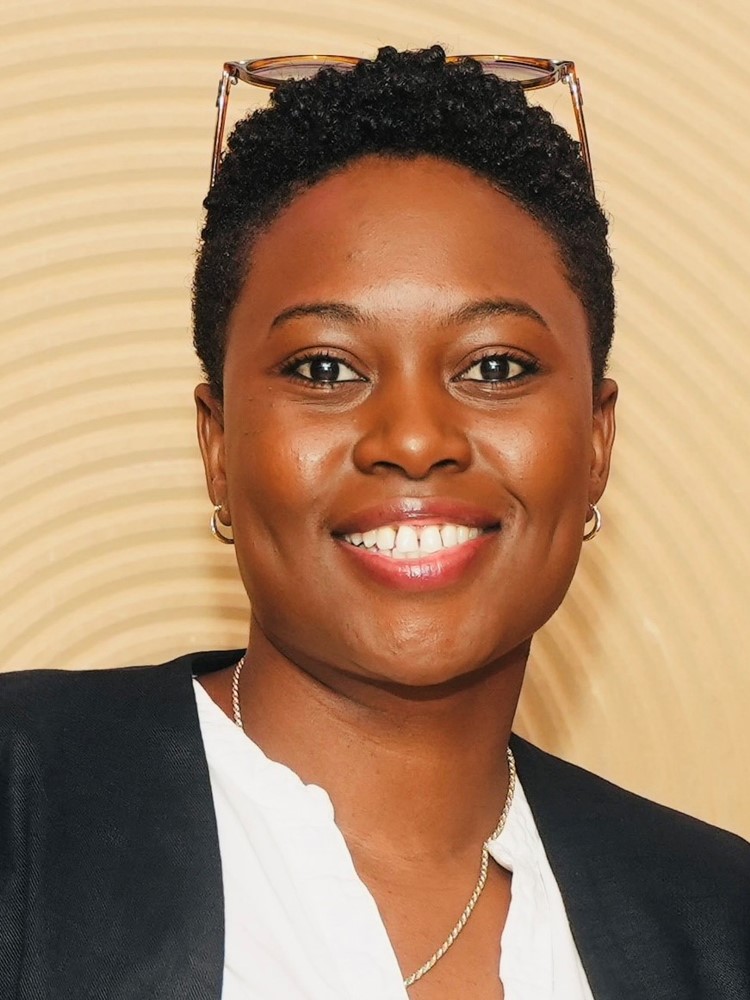I came to discover on arrival that the phrase “land of the free and home of the brave” had nuances to it that trickled down over 400 years into the present day, and most especially did not hold true for Indigenous and Black communities. Today, extraction and discrimination not only affect these groups, but other people of color as well, including immigrants (of color), who suffer the negative consequences of America’s systemic racism and dominant culture. Understanding these experiences on a personal level led me to my first role in philanthropy, helping invest in solutions realizing economic mobility for immigrants and refugees at World Education Services (WES) Mariam Assefa Fund.
In 2020, as I was accepting my offer for this role, the world awaited the results of America’s presidential election, and immigration policy was top of the agenda. Not only was I anxious that my new role could be affected by potential shifts in these policies, but my life could be affected as well because, at the time, I was an asylum seeker in my seventh year and experiencing the backlogs of work permit renewals – a major issue immigrants in America face today. Joining the team eventually felt like a full circle experience, because WES’ core business of credential evaluation services was my first interaction with U.S. systems, as I needed my academic credits from Africa validated and translated to the U.S. system. Committing to the WES team and their efforts to invest in immigrant and refugee communities felt like a no brainer because I was paying it forward. But as I joined the organization and gained more exposure to the lack of resources and the systemic barriers experienced by intersectional Black migrants like myself, I realized how philanthropy and governmental systems ignore the magnitude of needs and issues faced by Black migrants.
To date, less than 3% of philanthropic dollars go to Black-led organizations and an even smaller percentage goes to Black migrant-led organizations. These dreadful numbers and the lack of support are alarming and should serve as a call-to-action in philanthropy, because the Black population is only growing - Black migrants are the fastest growing immigrant group in the U.S. This boom in migration will remain a constant because, according to the New York Times, Africa’s youth population is expected to be the largest in the world by 2050. Without Black mobilization in the U.S. through Black voter power, political representation, policies and institutions, and Black grassroots organizations, the needs and issues of Black people will only intensify, causing more suffering, including for Black migrants.
These are some of the reasons the WES Mariam Assefa Fund has made a commitment to racial equity in efforts to address intersectionality in our work. Over 70% of our funding supports BIPOC, immigrant, or women-led organizations in both the U.S and Canada. This includes supporting recipients of the Black Migrant Power Fund like BAJI, Haitian Bridge Alliance, and African Communities Together and partnering with Echoing Green on our racial equity and immigrant justice initiative. We have also engaged with organizations like the Asylum Seekers Advocacy Project, which has made great strides tackling asylum backlogs and pushing for the granting of work permits within shorter timelines. In our impact investing portfolio, we have made commitments to supporting African international students. It is not just “what” and “who” we fund, but more importantly, how we fund. We apply participatory approaches as a trust-based funder, ensuring that we are not only shifting capital to where it is most needed, but also giving power to the proximate leaders who understand the problems best while supporting them beyond the check. We also believe in mobilizing additional resources by aligning our funding through partnerships that have leveraged an additional $20 million in capital from other funders since our inception in 2019.
As a GCIR board member, I am deeply proud that our Fund has built a multifaceted relationship with the organization – indicating the deep level of commitment we mutually share to uplifting voices while also changing the immigrant and refugee narrative within philanthropy. As we all gear up for the 2024 election year, I feel even more hopeful than I did nearly four years ago because I’m privileged enough to be serving these two great organizations; ready to continue investing in the immigrant and refugee ecosystem and infrastructure alongside my inspiring colleagues and the Black migrant movement builders doing the work daily.
